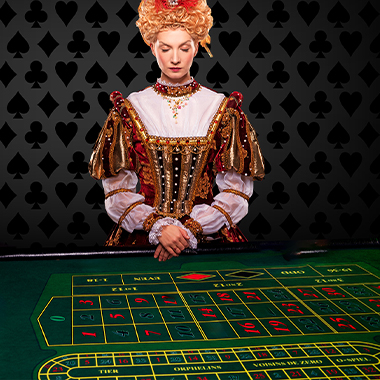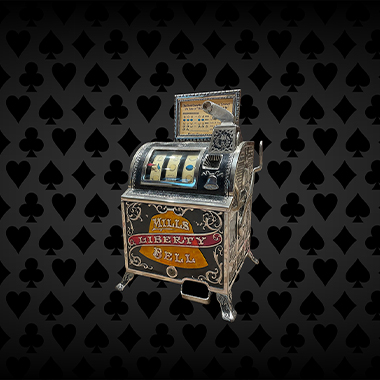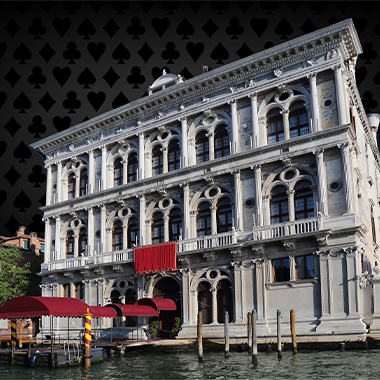The history of gambling
The game of chance has a long history: the fascination with probabilities and one’s own luck is not a modern phenomenon – and it has always been a popular pastime for people. Even if there were not such sophisticated variants in the early days of gambling as there are today, certain commonalities can be observed.
The birth of gambling
The first game of chance was probably invented more than 5000 years ago. The first dice, for example, were found in China from 3000 BC. In Greek mythology, Hercules rolls dice against a temple guard for a pretty courtesan. However, researchers discovered the precursors of today’s common six-sided dice from around 2000 BC in Egypt. People then made these dice from bone or ivory. Another type of dice that was found there was in the shape of a pyramid. Around the 9th century, the first playing cards were designed in China.

Gambling in antiquity
Dice games of all kinds were extremely popular in ancient Rome in all social classes, although they were officially prohibited. Dice games were only allowed on high holidays. The famous writer and Roman senator Tacitus wrote in his historical work “Germania” about the Germanic people, who played completely sober for huge stakes such as their own house or even their own freedom. Gambling was a popular pastime, especially in taverns. Emperor Claudius was an enthusiastic friend of Ludus duodecim scripta and even wrote a book about this precursor of today’s backgammon. An early form of sports betting took place in the arenas as part of gladiatorial combat. In contrast to dicing for money, however, this was legal. Horse betting was invented in Greece in ancient times. Gallop races were held for the 23rd Olympiad, on which anyone could bet.

17th century
An early form of poker also emerged in the 17th century – probably in Persia. Roulette was also invented in this century.
The invention of roulette is often attributed to the French mathematician Blaise Pascal – but this is based on a misunderstanding: Pascal was one of the pioneers of probability theory and wrote his “Histoire de la roulette” and “Suite de l’histoire de la roulette” in 1658, but these writings are not about the game of roulette, but about the cycloid, which is also called roulette in France. Italy in the 17th century is often cited as the country of origin of roulette; after all, Meyers Konversationslexikon still referred to the Große Roulette with the 38 numbers 00, 0, 1-36 as Italian roulette around 1900. The roots of roulette are probably to be found in the medieval wheel of fortune, like those of the wheel of fortune.
According to gambling historians, Black Jack can also be traced back to the 17th century. The name of the game developed when gambling was legalized in Nevada. If a player had a “Black Jack” with an ace of spades and a jack of spades in their hand, they received a higher payout rate. This is how the name Black Jack came about.

18th century - the "high game" of the nobility
In the 18th century, an attitude towards gambling developed that was primarily claimed by the nobility: certain games of chance were then assigned to the nobility and upper social classes. They were considered “noble”. On the other hand, there were other games of chance, such as card games, which were derogatorily assigned to the lower social class and funfairs.

19th century - the first slot machine
The breakthrough of mechanical slot machines came in 1895 with the Liberty Bell. This was invented by the German emigrant Charles August Frey in America. The Liberty Bell had a slot for coins and three reels with different symbols. If a bell appeared on all three reels, you had hit the jackpot. The bell symbol can still be found on slot machines today.

The first casinos
The first casinos were built in Italy in the 17th century. The oldest casino is said to have opened in 1638 in the Palazzo Vendramin-Calergi in Venice. That would make it almost 400 years old. Casinos then gradually spread throughout Europe. Berlin also has a long tradition as a gambling city. As early as the 18th century, there were “gambling dens” and games of chance here that attracted people from all over the world. However, these were still a long way from today’s gambling standards. Today, casinos have the state mandate to channel people’s natural urge to gamble in an orderly and safe manner and to ensure that the games offered are always transparent, controlled and professional. The entire gambling industry in Germany is now subject to strict regulatory requirements that define access to gambling, participation in it and the specific framework conditions – such as measures for the protection of young people and players and for the prevention of money laundering.
.
